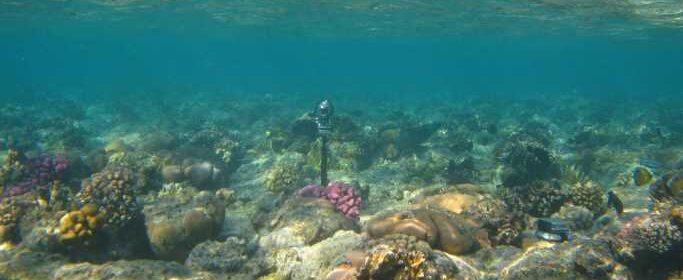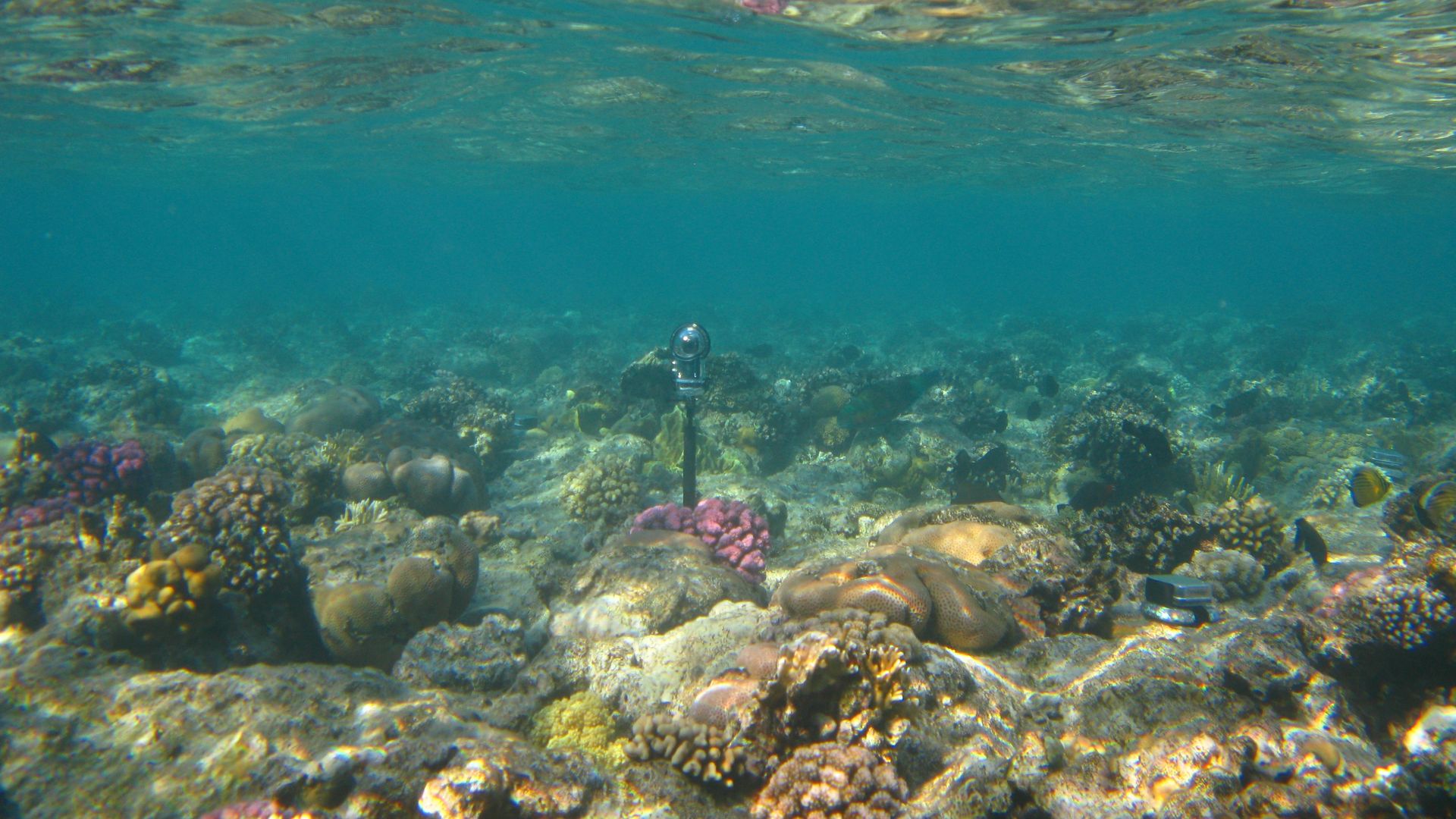Google wants you to save coral reefs (with AI's help)

A hydrophone, or microphone designed to be underwater, positioned in a bed of coral at Egypt's Ras Mohammed National Park. Photo: Carmen del Prado via Google
Google has teamed up with marine biologists in launching a new citizen-science, AI-powered platform allowing you to help save the world’s coral reefs — from the comfort of your couch.
Why it matters: It enables anyone with a digital connection to get involved in the race to preserve corals from compounding threats like climate change, pollution, overfishing and disease.
How it works: Over the last three years, the "Calling in our Corals" initiative has deployed water-optimized microphones to 10 coral reefs across the globe.
- The underwater recorders were put in reefs both within and outside of marine protected environments across the U.S., Australia, Indonesia, Egypt, Panama, Sweden and the Philippines.
- There, they've collected sounds of marine life, which have since been compiled into a just-released platform that gamifies a cache of audio recordings for web visitors to parse through.
- One example: Participants are taught how to identify "sounds of fish" and then played 30-second clips of coral reefs, clicking whenever they hear a relevant sound.
What they're saying: Mary Oluremi Shodipo, a National Geographic Explorer and marine ecologist who led the dives to collect reef recordings in the Philippines, tells Axios that fish activity indicates the best quality environments.
- "When you have juvenile fish and juvenile coral larvae, they're out in the open ocean, and the way that they find where they're going to settle, one of the things they use is sound," says Shodipo.
- She notes that a healthy reef is "louder" with "a lot more diversity in sound," which attracts new juvenile species to be able to repopulate the reef.
Zoom in: When played back via underwater speakers in damaged habitats, scientists say sounds of marine life can actually help degraded coral ecosystems regenerate — effectively bringing these ecosystems back to life.
- A 2019 paper in the journal Nature Communications found that when sounds of a healthy reef were played to restructured coral rubble in the Great Barrier Reef — which had been hit by cyclones and a massive coral bleaching event — the amount of fish settled there doubled.
- Co-author Steve Simpson, a marine biologist and fish ecologist at the University of Bristol who leads the "Calling in our Corals" project, tells Axios that when we listen to the sounds of a reef, we can hear biodiversity — and we can use those sounds to accelerate coral regrowth.
Details: When a reef starts to deteriorate, it goes quiet and no longer attracts animals to the environment, creating a downward spiral — which is what we see in cases of climate-induced coral bleaching events, says Simpson.
- "With sound, we can break that negative loop … without that sound, that reef wouldn't regenerate. But when we add sound, we see the increase in recovery."
The intrigue: They're hoping the experiment will bring hundreds of thousands of people together to help to pull the data out of those recordings so they can detect different biological sounds, creating what Simpson calls "a library of all of the types of sounds that you get from the ocean."
- Clare Brooks, Global Lead for Sustainability at Google Arts & Culture, tells Axios in a written statement that the next phase is to train an AI model that can accelerate the review of reef audio, helping scientists to better monitor and protect coral reefs.
- "Applying AI in this way will allow ecologists to focus on ecology, rather than data annotation," says Brooks.
The bottom line: "Coral reefs are some of the most fragile ecosystems on the planet. And in my lifetime, we've lost half of all of the coral, which means that they're potentially the first ecosystem we could lose completely," says Simpson.
- "If you flip that on its head … they're the first ecosystem we can save."
Source: Read Full Article

